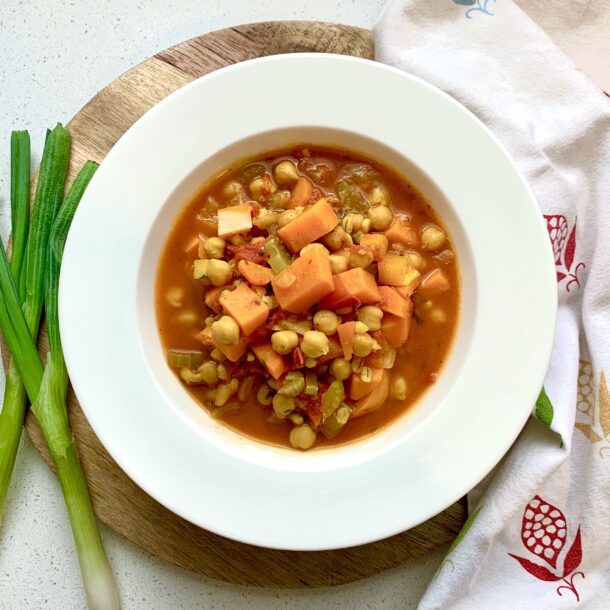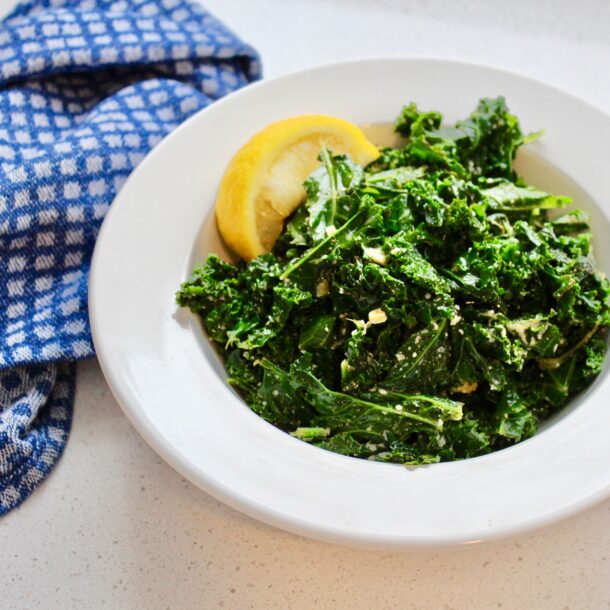
7 Ways to Alleviate Bloating
Written by Brooke Bulloch, RD & CEO.
As a dietitian who focuses their practice on gut health and function, most of my clients with gastrointestinal issues, especially those with Irritable Bowel Syndrome (IBS), struggle with bloating and discomfort. While everyone can experience bloating to some degree, over 90% of people with IBS are affected by bothersome bloating.
According to Monash University, bloating is the sensation of tummy swelling, sometimes described as the feeling of an inflated balloon in the belly. This differs from abdominal distention, where the person will see an actual increase in measured abdominal size. Bloating and distention may occur together, but bloating can occur without distention.
How one person experiences bloating may be different than another, for example:
- Having bloating with gas (belching or flatulence);
- Bloating that is painful;
- Bloating that gets worse as the day progresses;
- While bloating usually resolves over night, occasionally people can experience bloating upon waking up.
Causes or triggers can be vast and complex, including:
- Stool backup and constipation;
- Slow gastrointestinal transit/gut motility;
- Hypersensitivity in the gut (sensitive gut nerve endings that can trigger bloating and pain);
- Dysbiosis of the gut microbiome;
- Intolerance to certain meals or foods (learn more about the role of FODMAPs in IBS here).
It’s important to first visit with your doctor who can provide assessment and try to diagnose the underlying condition (if there is one) related to bloating (e.g. IBS, IBD, celiac disease, constipation, and others). From there, a dietitian will help to pinpoint the underlying trigger or cause and support you with a nutrition plan to help alleviate your discomfort. In the meantime, read on for 7 strategies to help alleviate bloating.
7 Strategies to Help Alleviate Bloating:
1) Slow down your eating and chew food well. The better food is chewed, the more efficient digestion is;
2) Try smaller, but more frequent meals/snacks. Bigger meals take longer to digest and can slow down the gastrointestinal transit.
3) Consider your beverage. Alcohol, carbonated beverages and too much caffeine (especially later in your day) can contribute to bloating.
4) Drink strong peppermint tea (2 bags per cup) or try a enteric-coated peppermint extract (e.g IBGard). Peppermint shows a relaxation effect on GI tissue, and an analgesic and anesthetic effect in the central and peripheral nervous system. In other words it relaxes and soothes the gut muscles which can alleviate gas, bloating, and pain.
5) Increase fibre. Psyllium fibre is a soluble fibre and bulk-forming laxative that can help with motility, gut function, and bloating. It is well tolerated by most people.
6) Practice diaphragmatic breathing. First, stress can contribute to bloating due to the complex connections between the brain and enteric nervous system. Not only can diaphragmatic breathing supports stress reduction, activating the diaphragm creates a gentle massage for the internal organs and stomach. This can reduce pain, bloating, and constipation.
7) Move your body. Movement helps with gas clearance, and aids in stress reduction.
If you’re still struggling with persistent and problematic bloating after trying a few of these strategies, reach out to Colleen MacKay or Brooke Bulloch (GI dietitians), for full assessment and support.
LET'S STAY IN TOUCH
Join our mailing list
Join our newsletter for more non-diet content including practical nourishment, recipes, nutrition myth-busting, and weight inclusive well-being.

Curiosity, self-compassion, food peace. Nutrition assessment, planning, and monitoring + food relationship counseling.
Food to Fit Locations:
#203, 2445 Broad Street
Regina, Saskatchewan
1124 8th Street East
Saskatoon, Saskatchewan





